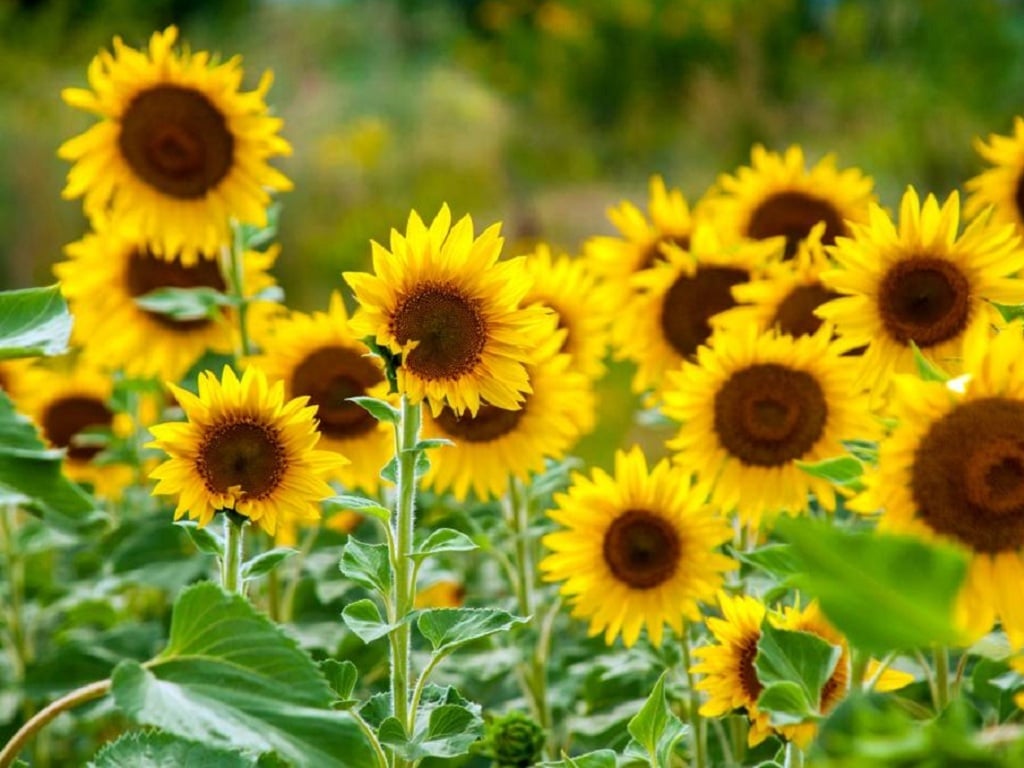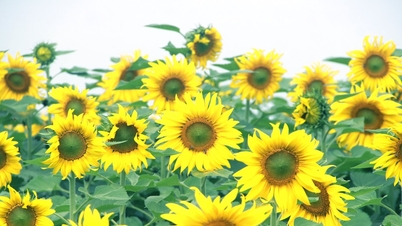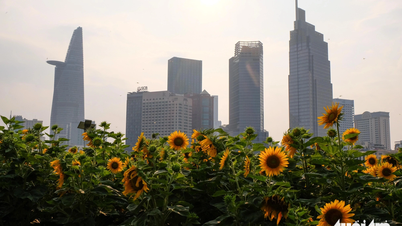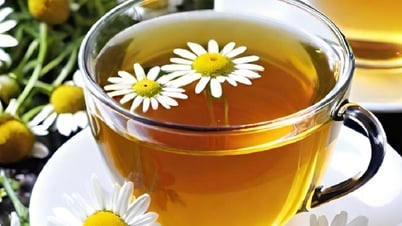Most flowers produce pollen, which is released into the air. Pollen consists of very fine particles that travel from plant to plant for pollination and germination. Therefore, we can easily come into contact with pollen through our skin or inhale it as it floats in the air, according to the health website Medical News Today (UK).

Sunflowers can easily cause respiratory allergies due to their high pollen content.
For people with allergies, inhaling pollen can cause symptoms such as sneezing, nasal congestion, itchy and red eyes, and watery eyes. This is especially likely to happen if you are near places where flowers are grown.
To reduce discomfort, people with allergies should avoid placing the following types of flowers in their homes or workspaces:
Chrysanthemum
Chrysanthemums are very popular because of their beautiful and diverse colors. However, chrysanthemums can cause respiratory allergies not only through pollen, but some substances in the flower can also cause skin allergies. Chrysanthemums also contain a large amount of pollen.
If you have chrysanthemums in your home or workspace and you experience sneezing, runny nose, nasal congestion, or other allergy symptoms, it's best to move them elsewhere.
Sunflower
Because sunflowers are large, it's not surprising that they produce a large amount of pollen that is dispersed by the wind. If you still like sunflowers, you can try growing or displaying Joker sunflowers – this variety releases less pollen into the air, so it's less likely to cause allergies.
Tassel
Aster flowers, also known as fringed daisies, are a type of flower that can cause quite strong allergies. Their pollen can trigger allergic symptoms ranging from nasal congestion, runny nose, and coughing to eye and skin irritation. They typically bloom in late spring, later than many other flowers.
Marigold
Marigolds are also a flower that people with allergies should avoid because they produce a lot of pollen. Furthermore, the scent of marigolds can be irritating to people with asthma or other odor sensitivities.
In addition, there are some types of flowers that are non-allergenic or minimally allergenic. These include begonias, daffodils, irises, pansies, geraniums, tulips, crocuses, lilies, roses, and petunias, according to Medical News Today .
Source link





![[Photo] Prime Minister Pham Minh Chinh attends the Conference on the Implementation of Tasks for 2026 of the Industry and Trade Sector](/_next/image?url=https%3A%2F%2Fvphoto.vietnam.vn%2Fthumb%2F1200x675%2Fvietnam%2Fresource%2FIMAGE%2F2025%2F12%2F19%2F1766159500458_ndo_br_shared31-jpg.webp&w=3840&q=75)











































































































Comment (0)